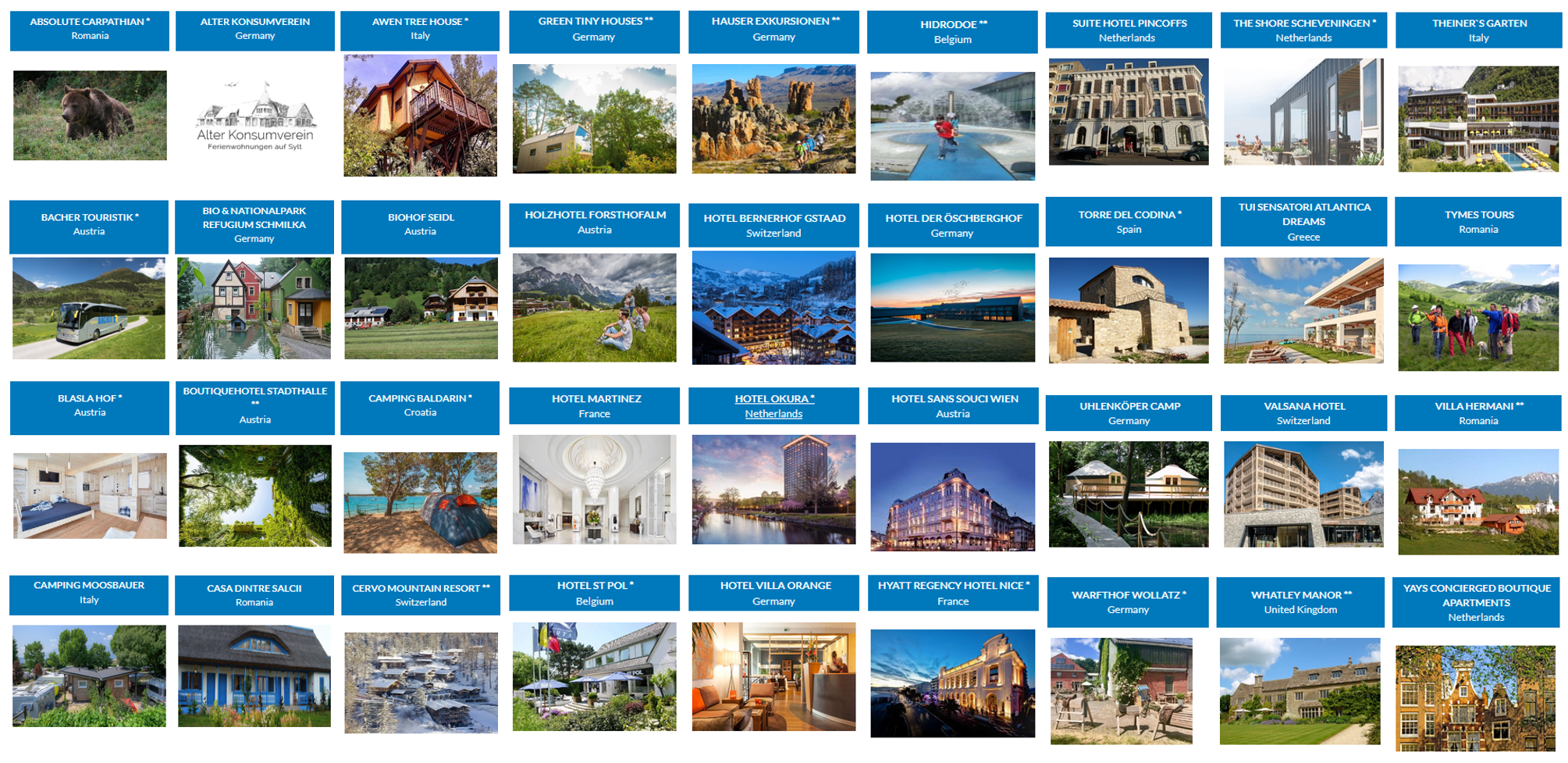Knowledge Networking Portal for Sustainable & Responsible Tourism










 ETGG2030: 70 Good Practice Businesses for the SDGs
ETGG2030: 70 Good Practice Businesses for the SDGs
The ETGG2030 SME Good Practice Collection demonstrates that and how credibily certified tourism SMEs in Europe are contributing to the Sustainable Development Goals 2030, a.a. to the SDGs 8, 11,12, 13, 14, 15 and 17.
The 70 exemplary hotels, camping sites, guest houses, tour operators and other businesses are all awarded by national or international environmental and sustainability certification programmes.
SEE the participating certificates' profiles and the Green Travel Maps of their certified businesses worldwide.
SEE them as A-Z with their pictures and links to their descriptions with outstanding achievements and contributions to the SDGs.
USE the Good Practice Browser map to filter the 70 examples by country, by business category and by their special performance along the GSTC criteria for businesses.
|
About the SME Sustainability Good Practice Collection |
|
This SME Sustainability Good Practice Collection brings together a set of tourism enterprises in Europe which demonstrate sound management and innovation in the pursuit of sustainability. The collection is based on nominations submitted in 2021 by sustainable tourism certification bodies, following an invitation by ECOTRANS. The nominations received were subsequently assessed by a panel of experts participating in the ECOTRANS network. The collection is presented as a set of good practice case studies, based on the information submitted. These include 36 written descriptions (10 full page and 26 shorter pieces) and a further 34 tumbnail descriptions. The 36 examples with written descriptions of their outstanding contributions to the SDGs are marked with ** (10 longer case studies) and * (26 shorter case studies) . The 70 enterprises are primarily accommodation businesses, including hotels, other serviced accommodation, self-catering/apartments, glamping and camping operations. A small number of other types of business are also featured, including tour operators, attractions, activity providers and restaurants. All the enterprises are SMEs. They are categorised by size according to the number of employees:
The case studies also indicate which of the Sustainable Development Goals (SDGs) are most closely related to the actions described. Although sustainable tourism can have some bearing on each of the 17 SDGs, this exercise has been restricted to just seven of them:
Reference is similarly made to the internationally recognised Global Sustainable Tourism Criteria for Industry (GSTC-I), showing which of the 42 individual criteria relate most directly to the activities set out in the case study. It is important to note that the SDGs and GSTC-I criteria indicated do not necessarily reflect all aspects of the enterprise’s policies and activities. They simply relate to the matters covered in the case study descriptions. The detailed procedure of the nomination, participation of certificates and evaluation is described on ETGG2030 Good Practice Collection 2021 |
For further information please contact: herbert.hamele@ecotrans.de
|
|
|
| Concerned URL | https://destinet.eu/good-practices/etgg2030-sme-sustainability-best-practice-collection/etgg2030-70-good-practice-businesses-sdgs |
|---|---|
| Address | |
| Source | ECOTRANS |
| Keywords | ETGG2030-GP, Small and Medium Enterprises (SMEs), SDG, GSTC |
| Target group(s) | Businesses |
| Topics | Certification & Marketing |















































